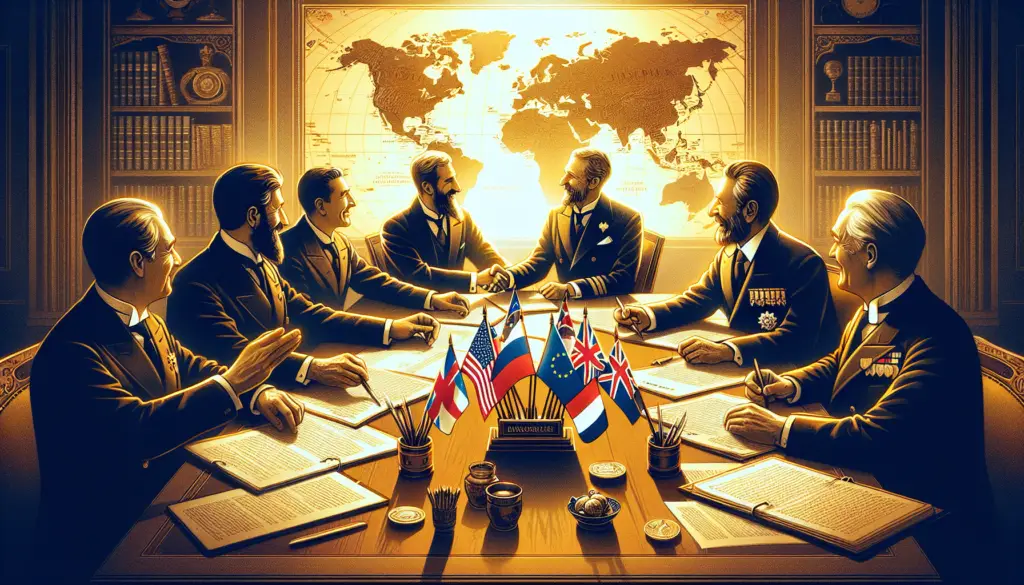The Diplomatic Triumph: How Zulfikar Ali Bhutto Secured the Release of 90,000 Pakistani Prisoners of War
The Aftermath of the 1971 Indo-Pakistani War
The 1971 Indo-Pakistani War was a pivotal moment in the history of the subcontinent, with far-reaching consequences that reverberated for years to come. The conflict, which resulted in the independence of Bangladesh, also left a significant number of Pakistani prisoners of war (POWs) in the hands of the Indian government. This delicate situation posed a significant challenge for Pakistan’s new leadership, which was tasked with navigating the complex diplomatic landscape to secure the release of these captive soldiers. Zulfikar Ali Bhutto diplomatic mastery was crucial in orchestrating negotiations and strategies to ensure the safe return of these POWs, marking a pivotal moment in his diplomatic career.
Zulfikar Ali Bhutto: The Diplomatic Mastermind
Amidst the turmoil, Zulfikar Ali Bhutto emerged as a diplomatic force to be reckoned with. As the newly appointed Prime Minister of Pakistan, Bhutto recognized the urgency of the situation and set out to devise a strategic plan to bring the POWs home. With his keen intellect, political acumen, and unwavering determination, Bhutto embarked on a diplomatic journey that would ultimately lead to a remarkable triumph.
The Simla Agreement: A Diplomatic Breakthrough
Bhutto’s first step was to engage in high-level negotiations with the Indian government, led by Prime Minister Indira Gandhi. The resulting Simla Agreement, signed in 1972, laid the foundation for the resolution of the POW issue. This landmark agreement not only established a framework for the repatriation of the prisoners but also set the stage for a broader normalization of relations between the two countries.
Related Article : Israel-Palestine Conflict: A Tumultuous History

Navigating the Diplomatic Landscape
With the Simla Agreement in place, Bhutto’s task was far from over. He faced a complex web of international politics, where the interests of various global powers intersected. Bhutto skillfully navigated these treacherous waters, leveraging Pakistan’s strategic position and forging alliances with key players on the world stage.
The Diplomatic Triumph: The Release of 90,000 POWs
Bhutto’s unwavering efforts and diplomatic acumen paid off, as he managed to secure the release of all 90,000 Pakistani POWs held by India. This remarkable achievement was a testament to Bhutto’s diplomatic prowess and his commitment to the well-being of his country’s citizens. The successful repatriation of the POWs not only alleviated the anguish of their families but also bolstered Pakistan’s international standing and restored a sense of national pride.
The Legacy of Zulfikar Ali Bhutto
Zulfikar Ali Bhutto’s handling of the POW crisis stands as a shining example of his diplomatic skills and his dedication to the interests of Pakistan. His ability to navigate the complex geopolitical landscape, forge strategic alliances, and ultimately secure the release of the prisoners cemented his legacy as a statesman of remarkable caliber. The successful repatriation of the POWs not only alleviated the suffering of their families but also strengthened Pakistan’s position on the global stage, paving the way for future diplomatic successes.
Lessons Learned and the Enduring Significance
The story of Zulfikar Ali Bhutto’s diplomatic triumph in securing the release of the Pakistani POWs holds valuable lessons for future leaders and policymakers. It demonstrates the power of strategic thinking, the importance of international cooperation, and the critical role of diplomatic acumen in resolving complex geopolitical challenges. As the world continues to grapple with various conflicts and disputes, the example set by Bhutto serves as a testament to the transformative potential of effective diplomacy.
Conclusion
Zulfikar Ali Bhutto’s successful negotiation and repatriation of the 90,000 Pakistani prisoners of war stands as a remarkable achievement in the annals of diplomatic history. Through his unwavering determination, political savvy, and strategic vision, Bhutto navigated the treacherous waters of international politics to secure the release of these captive soldiers, bringing relief to their families and restoring a sense of national pride. The legacy of this diplomatic triumph continues to inspire and guide future leaders, underscoring the enduring power of effective diplomacy in resolving complex global challenges.

